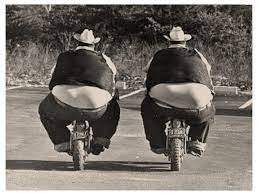The words "morbidity" and "mortality" are way too similar.
That fact made my recent cancer experience worse than it had to be.
Yeah, cancer.
This story starts in early February, when I got a dreaded message from my health care provider: "Here is the result of your biopsy: Pigmented basal cell carcinoma nodular type-extending to both peripheral and deep tissue edges."
I knew a few of the words. Including carcinoma. It's cancer.
Oh no.
Really, oh no.
Not what I expected, nor what my doctor expected. Cancer. And I found out as I was getting ready to go to bed.
I sat down for a second. Reminded myself that I trust God for everything. Told Mrs. Brad: "Well, I have cancer."
It was scary. It was one of those moments you hope to never encounter. It was one of those moments that many, many people encounter. It's still unexpected.
So, after talking with and hugging Mrs. Brad and again reminding myself that I trust God for everything, I did what we all do: I looked up the prognosis on Google. I knew "carcinoma," but didn't know the other words.
The first websites were generally positive: It's the most common form of cancer. It's treatable.
Then I saw one that said "the morbidity may be considerable" and had to sit down.
Considerable morbidity? I found another site that said, "the morbidity is nearly 100%."
Again: I had just seen a cancer diagnosis. Now I see that morbidity is nearly 100%.
My head was spinning. I had to sit down. I reminded myself again that I trusted God for everything, even if this turns out bad.
NEARLY 100% MORBIDITY!
Then I looked up "morbidity."
It means, "the condition of suffering from a disease." What?
So having cancer means there's a considerable chance at having a disease? It means there's nearly 100% chance of suffering from a disease?"
HOW IS IT NOT 100%????
IF YOU HAVE CANCER, YOU HAVE A DISEASE!
AND MORE IMPORTANTLY, WHY DOES MORBIDITY SOUND SO MUCH LIKE MORTALITY?
I didn't sleep well that night. (Although this is one exception to the advice to not Google your symptoms. The common fear is that you have cancer, so if you already know it's cancer, it can be reassuring. Like hearing that it's common and treatable – although "morbidity" may confuse you.) The following days were scary and sobering, particularly until I could talk with a doctor.
I told my family and some friends. I scheduled a procedure to cut out the cancerous section of skin. I kept reminding myself it's about morbidity, not mortality (although as a Type 1 diabetic, I now have co-morbidities. Not great, but it could be worse: I could be a Raiders fan.).
To bury the lead, as we say in journalism, I had minor outpatient surgery (Mrs. Brad and I disagree whether having a quarter-sized chunk of skin taken out of my torso counts as surgery, but I insist on casually referring to it as "my cancer surgery") and waited for the results. They came back a week later: The lab says it's all gone. I just have to return for checkups to catch any recurrence early.
So it's really a happy ending. But here's what I learned:
• I can trust God with everything, even if it's bad news.
• It's uncomfortable to have skin removed from your body.
• People are sympathetic when they hear you have cancer, even if it's "minor" and even if you joke about it.
• Morbidity and mortality are very different things.
No. 1 is the most important, but No. 4 is pretty significant.
Reach Brad Stanhope at bradstanhope@outlook.com.



